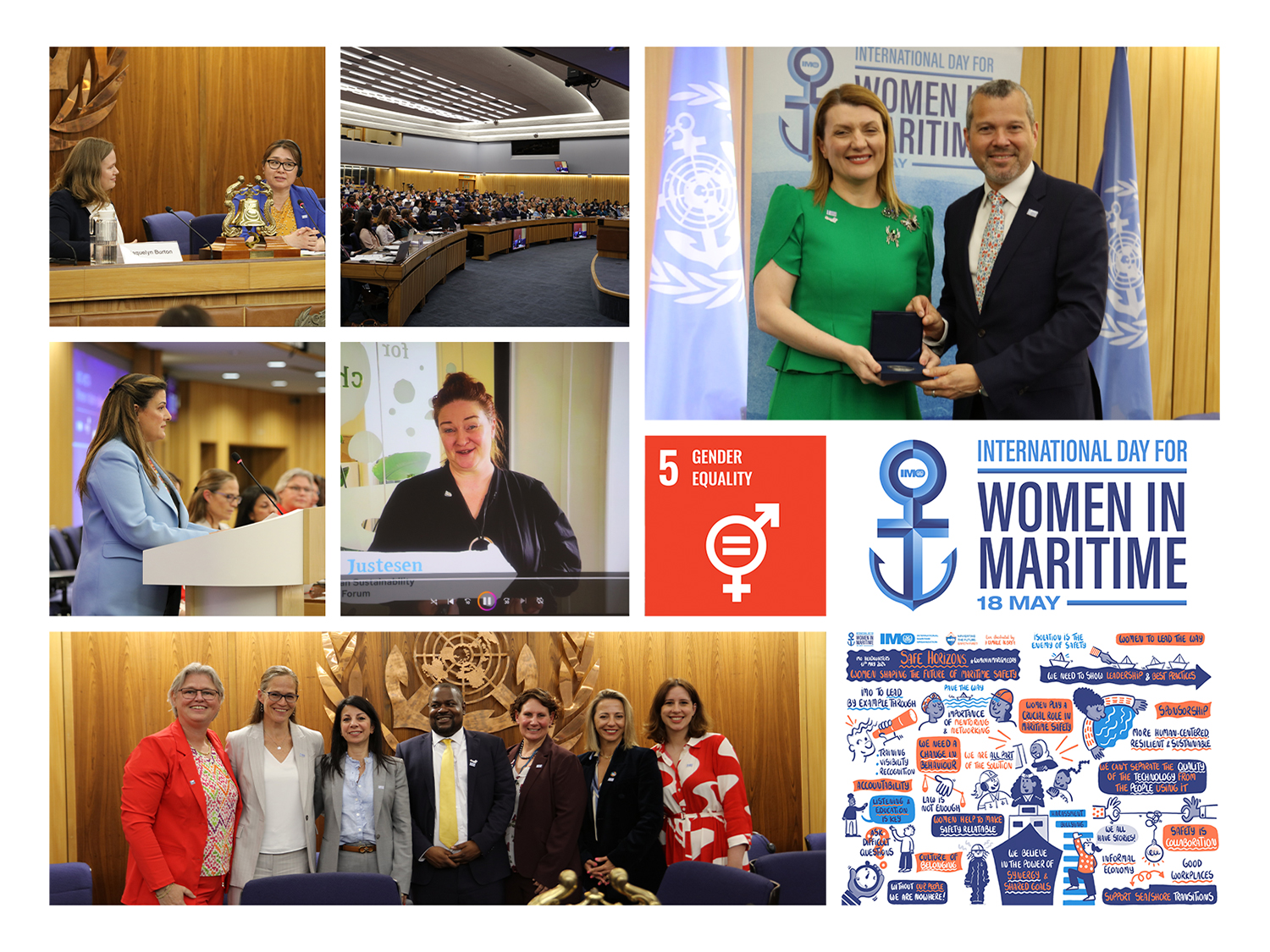Leading voices in the shipping industry have underscored the importance of mentorship and educational opportunities to bolster women’s profile in the male-dominated maritime sector.
During a symposium (17 May) organized by IMO in London to celebrate the International Day for Women in Maritime, a panel of experts discussed how to incorporate women’s perspectives in shaping the future of maritime safety.
Opening the event, IMO Secretary-General Arsenio Dominguez stated: “We must – and will – do more [to support gender equality]. By investing in women's education and professional development, we empower women, drive innovation and foster sustainability within the maritime industry, to the benefit of all.”
Breaking barriers
The panelists highlighted the existing challenges to women’s safety and professional advancement in the sector. For example, female seafarers face basic barriers such as lack of safety gear in their size, lack of female sanitary products provided onboard ships, and lack of adequate options if they wish to start a family. The risk of bullying and harassment as well as unequal access to on-the-job training are also challenges.
Discussions covered insights into recruiting and retaining women in the workforce, including mentorship, access to training, improving the culture of safety in maritime and raising awareness about gender-inclusive life at sea.
“Each one of us is accountable for ensuring safety on ships, both as individuals and organizations. If companies don’t adapt, they will not be able to retain good talent, especially from the younger generations,” said Dorothea Ioannou, CEO of SCB Inc., which manages the American P&I Club.
“Those of us who have been in the industry longer should take up the role of being a mentor. It’s about paving the way for the next generation, giving small tips and guidance,” added Karin Orsel, Chair of the European Community Shipowners Association.
Ms. Carolina Riesco, Maritime Law Advisor and Partner at Goldenberg & Riesco shared her experience as part of the MAMLA network for women in maritime administration in the Latin America region. The network facilitates access for women to training courses for their educational development, which helps to raise their profile in the profession.
“The key word is education… Networking is also crucial,” she emphasized.
MAMLA is one of eight Women in Maritime Associations (WIMAs) the IMO has helped to establish in Africa, Arab States, Asia, the Caribbean, Latin America and the Pacific, covering some 152 countries and dependent territories and 490 members. These networks provide members with a platform to discuss a number of issues, not just about gender, but also technical issues. These associations could go some way to bridging the gap in narrowing some of the institutional barriers and cultural stigma facing women who enter the maritime industry.
The panel included Ms. Dorothea Ioannou, Chief Executive Officer at SCB Inc.; Ms. Karin Orsel, Chair of the European Community Shipowners Association; Capt. Gemma Capone, Marine Pilot Loadmaster and Marine Assurance Specialist; Ms. Carolina Riesco, Maritime Law Advisor and Partner at Goldenberg & Riesco; and Mr. Helio Vicente, Director of Employment Affairs at the International Chamber of Shipping. Discussions were moderated by Ms. Michelle Sanders, Alternate Permanent Representative of Canada to IMO and member of the IMOGENder Network.
Following the panel discussion, Capt. Jaquelyn Burton, Master Mariner and Head of Creative Design at Kongsberg Maritime and Prof. Momoko Kitada, Head of Maritime Education and Training (MET) at the World Maritime University, held a dialogue exploring a ‘holistic approach’ to safety at sea.
Women in Maritime survey
As part of the programme, Ms. Elpi Petraki, President of the Women’s International Shipping and Trading Association (WISTA International), updated IMO Member States on the developments of the 2024 Women In Maritime Survey.
The first edition of the survey, published in 2022, found that women account for only 29% of the overall workforce in the general industry and 20% of the workforce of national maritime authorities in Member States. At sea, women seafarers make up just 2% of the crewing workforce and are predominately found in the cruise sector.
Ms Petraki stated: “The past survey results set a benchmark, enabling us to track the progress made over the past three years. The findings [of the 2024 survey] will help us identify strategies that are more effective, where our efforts need to focus and where our policies are most needed.”
IMO and WISTA are inviting Member States to appoint focal points to support the completion of the 2024 survey.
More information about the event

A live illustration by artist Camille Aubry captured the day's discussions.
***
